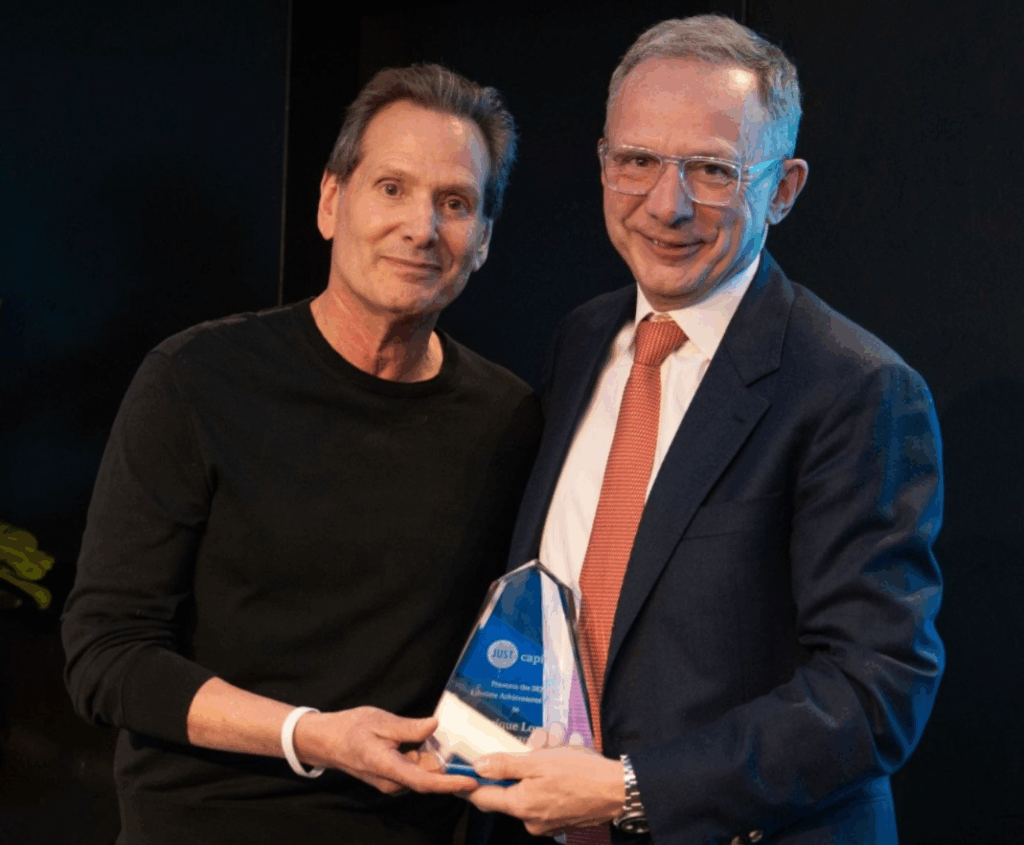Ashish Sahay, headquartered in Gurugram, serves as the Head of Corporate Social Responsibility (CSR) and Strategic Initiatives for HP Inc. India.
He has been leading HP’s strategic CSR and citizenship activities since February 2016, overseeing the conceptualisation, implementation, and monitoring of multiple large-scale community outreach programmes across India.
Among the flagship projects under his leadership is “HP World on Wheels” (HP WoW), a fleet of internet-enabled mobile digital literacy and governmental service vehicles reaching over 6,400 villages and impacting more than 15 million people over six years.
His work systematically aligns with India’s national development goals through multi-sector partnerships involving government bodies, NGOs, and the private sector.
HP’s CSR initiatives under his stewardship have earned prestigious recognitions, including the Indo-American Corporate Excellence Award (Best CSR of American Company in India) and National CSR Leadership Awards, affirming measurable social impacts in education, sustainability, and community empowerment.

Technology-Driven CSR Empowering Rural Communities
Ashish Sahay’s strategic leadership at HP India manifests most notably in the “HP World on Wheels” project, implemented in partnership with the Entrepreneurship Development Institute of India (EDII).
These 20-seat, internet-connected vehicles equipped with computing equipment such as HP Thin Clients, workstations, and multifunctional printers serve as mobile digital inclusion labs. They provide e-learning modules, entrepreneurship training, digital literacy, and access to government schemes as Community Service Centres (CSCs), predominantly targeting rural populations.
Each vehicle caters to villages across states including Gujarat, Madhya Pradesh, Odisha, Uttar Pradesh, and Andhra Pradesh, enabling capacity-building for youth, schoolchildren, and marginalized groups.
Over six years, HP intends to deploy 48 such vehicles, a sizeable intervention to bridge the digital divide impacting 15 million rural residents.
This initiative addresses the digital literacy dimension of the Government of India’s “Digital India” programme, which aims to transform the nation into a digitally empowered society and knowledge economy by improving transparency, governance, and access to services in the vernacular.

Beyond digital literacy, HP’s CSR portfolio under Sahay’s leadership encompasses diverse sectors such as environmental sustainability, skill development, health, and education.
Strategic emphasis is placed on transparent partner selection, robust governance, and real-time impact measurement using data analytics, enhancing programme efficiency and stakeholder engagement.
HP’s employee volunteering drives, integrated with sustainability frameworks, foster direct community involvement and institutional ownership.
The programmes are designed to comply with India’s Companies Act provisions on CSR, aligning with legal frameworks and international best practices, reflecting Sahay’s prior professional expertise in statutory compliances and social auditing.
Professional Trajectory and Expertise in CSR Strategy
Ashish Sahay’s career spans nearly two decades within India’s corporate social responsibility sector. Before assuming his current role at HP, he held senior CSR management positions at Panasonic India, Jubilant Life Sciences, Mawana Sugars, and Ambuja Cements.
His expertise covers CSR strategy formulation, policy development, compliance management including the Companies Act, impact assessment, social audits, and stakeholder networking across government, NGOs, and funding agencies.
This comprehensive experience informs his systematic approach to designing scalable, impact-oriented projects at HP, demonstrating measurable social outcomes.

Recognised nationally and internationally for his leadership, accolades include the “CSR Professional of the Year 2016,” “National CSR Leadership Award 2017,” and placement among the “Top 100 Most Impactful CSR Leaders Globally” by ET Now and World CSR Day.
Based in Gurugram, Sahay exemplifies the transformation in India’s CSR landscape from narrower philanthropy models to integrated, strategic interventions enabling sustainable development.
His work employs an evidence-based, data-driven methodology treating CSR not only as a corporate mandate but as a critical driver for social and economic empowerment, particularly in digitally underserved rural regions.
Expanding Partnerships to Elevate Social Impact
Among recent initiatives led by Ashish Sahay is the collaboration between HP India, the National Council of Educational Research and Training (NCERT), and the Society for Advancement of Rural Development (SARD) in the remote region of Tehri Garhwal district, Uttarakhand.
This programme provides rural schoolchildren direct access to quality educational content including PM Vidya videos, Diksha platform resources, and other NCERT applications.
By enhancing learning outcomes in geographically challenged areas, the initiative supports the government’s focus on educational equity and digital empowerment.
HP India has also been actively engaged in sustainability efforts encompassing e-waste management, renewable energy integration in operations, and promoting green practices. These efforts reflect HP’s commitment to responsible environmental stewardship alongside social inclusivity.
Sahay’s role includes spearheading employee volunteering efforts to directly involve staff in community projects, strengthening corporate-community bonds and reinforcing corporate citizenship values.
The Logical Indian’s Perspective
The example set by Ashish Sahay’s leadership at HP illustrates how corporate social responsibility, when strategically planned and transparently implemented, can play a pivotal role in bridging systemic gaps in education, digital access, and community empowerment, especially in India’s rural heartlands.
The Logical Indian endorses such frameworks that combine data-driven impact assessment, technological integration, and multi-sector collaborations as essential for fostering social cohesion and sustainable progress. As digital divides narrow and India advances technologically, corporate entities must institutionalise impact measurement and accountability to ensure social investments translate into tangible benefits for the most vulnerable.
If you’d like us to feature your story, please write to us at csr@5w1h.media











